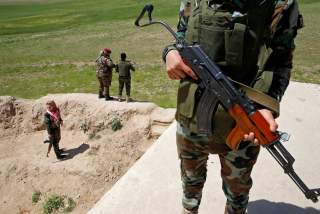What’s Next in the U.S. Security Relationship with the Iraqi Kurds?
Iraq’s instability and the ever-present threat of ISIS mean that the security partnership between the United States and the Kurdistan Regional Government will continue to be an important feature of American counterterrorism policy for years to come.
Iraq’s instability and the ever-present threat of ISIS mean that the security partnership between the United States and the KRG will continue to be an important feature of American counter-terrorism policy for years to come. The increases in U.S. security assistance to the KRG over the course of the war against ISIS have not as of yet also led to increased oversight over the effectiveness of this American support to improve the professionalism and war-fighting capabilities of the Peshmerga. This security partnership with the Iraqi Kurds may be important to the United States but it deserves sustained and high-level oversight to ensure that America’s money in support of the KRG and the Peshmerga forces is money well spent. Establishing a U.S. Security Coordinator for Northern Iraq and the Kurdistan Region of Iraq is a good step forward to make sure that U.S. security assistance to the KRG has a strong, sustainable, and positive impact in the campaign to inflict a lasting defeat on ISIS in Iraq.
Nicholas A. Heras is the Middle East Security Fellow at the Center for a New American Security (CNAS). His work focuses on the analysis of complex conflicts and security issues in the greater Middle East and North Africa and trans-Sahara regions. Nicholas has authored or co-authored numerous reports and analytical articles on topics concerning Middle East security and U.S. national security policy toward the Middle East. He has also presented widely on these topics to multiple U.S. government and military agencies.
Image: Reuters

